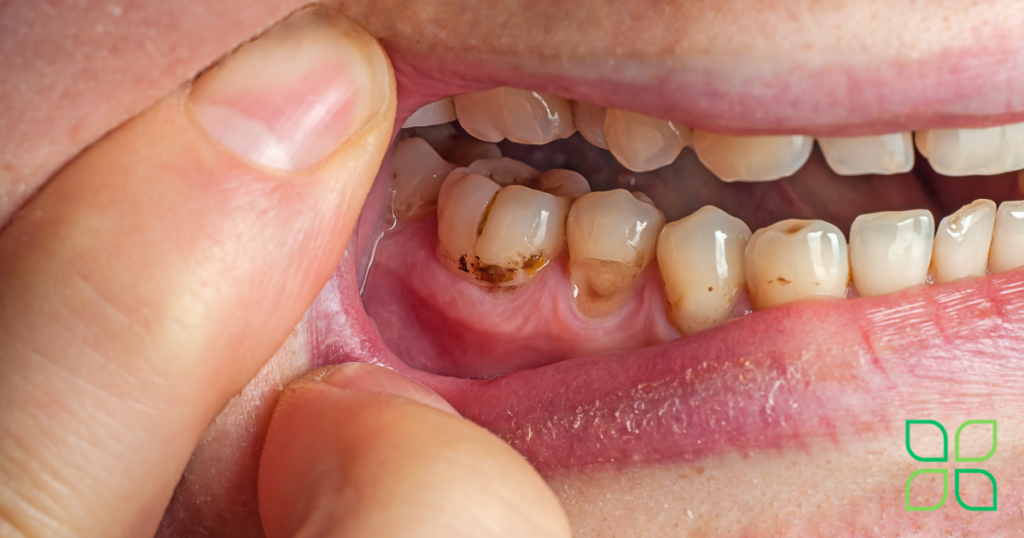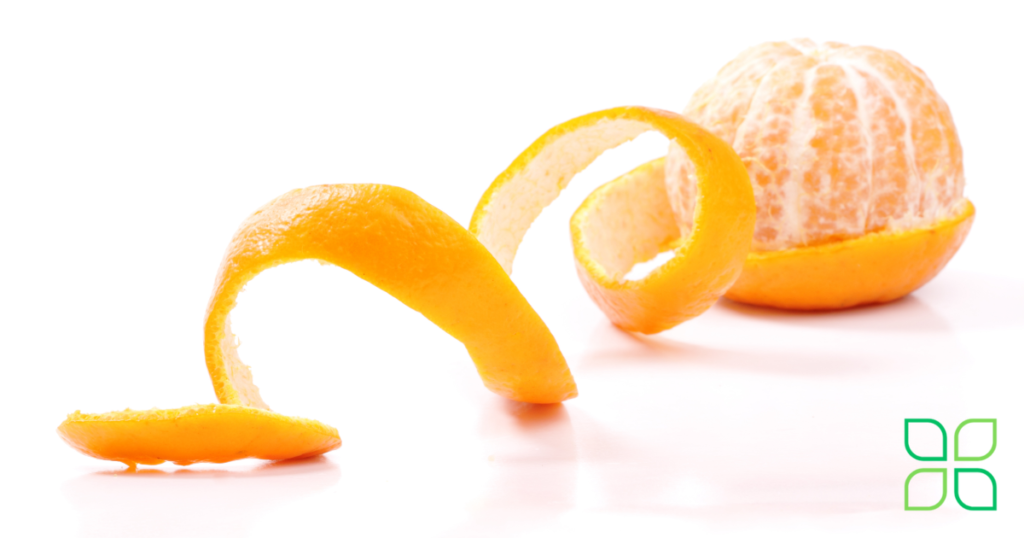The Role of Dental Plaque and Microbes in Oral Health: Causes, Effects, and Remedies

Dental plaque is a film of microbes that can cause various oral health issues such as gingivitis, bad breath, and tooth decay. Contrary to popular belief, plaque can develop even if you brush and floss regularly. This blog post will explore the causes of plaque formation, the role of microbes in oral health, and natural remedies to remove plaque from your teeth effectively.
Understanding Dental Plaque and Microbes:
Plaque is a calcium shell formed by microbes to protect themselves. This unique calcium shell serves as a shield, protecting these microorganisms against external threats and simultaneously playing a crucial role in dental health.
While plaque offers protection to microorganisms, it also poses a significant threat to dental and overall health. As plaque accumulates, it gradually hardens and mineralizes, forming a substance known as tartar or calculus. Tartar, characterized by its yellowish or brownish appearance, is not only aesthetically displeasing but also serves as a breeding ground for additional bacteria.
Plaque and tartar buildup can lead to a multitude of oral health issues. One of the most common and well-known consequences is dental caries or tooth decay. The acidic byproducts produced by the microorganisms within plaque gradually erode the tooth enamel, leading to cavities. Furthermore, plaque and tartar can also contribute to the development of gum disease, also known as periodontal disease, which can result in gum inflammation, bleeding, receding gum line, and even tooth loss if left untreated.
Maintain Optimal Oral Health with Professional Cleanings and Plaque Prevention
Maintaining a rigorous oral hygiene routine prevents tartar build-up and its associated consequences. Regular brushing, flossing, and antimicrobial mouthwashes can help disrupt plaque formation and remove the bacteria that fuel its growth. Additionally, a professional cleaning, often recommended every six months, is the best way for tartar removal and assisting in maintaining optimal oral health.
Causes of Plaque Formation:
Plaque develops when the friendly relationship between commensal microbes and the oral environment turns unfriendly or pathogenic. Several factors can contribute to this change, including:
1. Smoking and Alcohol: These habits can disrupt the balance of oral microbes, leading to plaque buildup.
2. Poor Diet: Consuming the wrong foods, especially those high in sugar, can stress the oral microbiome and promote plaque formation.

3. Chemicals in Oral Care Products: Some chemicals, such as chlorhexidine found in mouthwash, can disrupt the oral microbiome and increase the risk of decay.
4. Antibiotics: Overuse of antibiotics can kill off beneficial microbes, allowing pathogenic bacteria to thrive.
The Truth About Fluoride:
Fluoride has been the subject of much discussion and debate regarding its impact on dental health. Let’s delve into the subject and explore the benefits of fluoride for teeth.
One of fluoride’s most significant advantages is its ability to prevent tooth decay. When applied topically, fluoride can strengthen the enamel, making it more resistant to acid attacks from bacteria and sugary foods. This helps prevent cavities and reduce the risk of dental caries, especially in high-risk individuals such as children and older adults.
Nevertheless, it is essential to acknowledge the potential drawbacks associated with fluoride usage. One concern is the risk of developing dental fluorosis, a condition characterized by white streaks or brown spots on the teeth caused by excessive fluoride intake during tooth development. This condition is typically aesthetic and ranges from mild to severe, depending on the level of fluoride exposure. While dental fluorosis is generally not a significant health concern, it can impact an individual’s self-esteem and confidence.
Another aspect to consider is the possible adverse effects of fluoride when ingested in large quantities. Although uncommon, excessive fluoride consumption over extended periods can lead to a condition called skeletal fluorosis. This condition affects the bones and joints, causing stiffness, pain, and limited mobility. However, it’s important to note that skeletal fluorosis occurs primarily in areas with high naturally occurring fluoride levels in drinking water and is highly unlikely to affect individuals following recommended fluoride use guidelines.
While the advantages of fluoride in preventing tooth decay are well-documented, it is crucial to strike a balance and ensure safe usage. Dentists and dental hygienists play a critical role in assessing individuals’ fluoride needs and recommending appropriate concentrations and forms of fluoride based on their oral health and risk factors. This tailored approach ensures that patients receive maximum benefits while minimizing potential risks associated with fluoride use.
Natural Remedies for Removing Dental Plaque: DIY Toothpaste and Effective Home Remedies
Removing Plaque and Restoring Oral Microbes:
To remove plaque effectively, addressing the underlying causes and restoring a healthy balance of oral microbes is crucial. Here are some steps you can take:
1. Consume Probiotic Foods: Incorporate probiotic-rich foods like sauerkraut, kimchee, and kefir into your diet. These foods can help replenish beneficial microbes in your mouth.

2. Consider Probiotic Supplements: Probiotic supplements specifically designed for oral health can also help restore a healthy oral microbiome.
3. Chew Xylitol Gum: Xylitol gum can stimulate saliva production and help create a less favorable environment for plaque formation.
4. Make Your Own Toothpaste: Consider making your own toothpaste using natural ingredients to avoid potentially harmful chemicals.
Natural Remedies for Oral Health: Cloves, Sesame Seeds, and Orange Peel
8 Effective Ways to Naturally Remove Dental Plaque:
Besides the above list of addressing the underlying causes and restoring the health balance of your oral microbes, here are some extra natural home remedies to remove plaque from your teeth.
1. Rosemary Essential Oil: Rosemary essential oil acts as a disinfectant, eliminating bacteria in your mouth and preventing cavities and plaque build-up. Mix several drops of rosemary essential oil with a tablespoon of water. Rinse your mouth with this mixture for 10 minutes and spit it out. Repeat this process twice a day.
2. Cloves: Ground cloves have been used for decades to relieve toothaches, as they have many anti-inflammatory properties and antimicrobial properties that can destroy plaque-causing bacteria. Mix one teaspoon of powdered cloves with olive oil and apply the mixture to your teeth. Leave it for a couple of minutes before rinsing with cool water. Repeat this process twice a day. Chewing cloves regularly can also help maintain oral health and fight bad breath caused by bacteria.
3. Sesame Seeds: Sesame seeds can work as a dental scrub, removing plaque and tartar gently without damaging your teeth. Chew on a handful of sesame seeds for several minutes, making sure not to swallow them. Then, use a dry toothbrush to brush your teeth with the seeds still in your mouth. Rinse your mouth thoroughly when your teeth become shiny white.
4. Orange Peel: After eating an orange, don’t throw away the peel. Rub it onto your teeth to clean your enamel and whiten your teeth. This process also helps prevent stains and fights off microorganisms and bacteria. Rinse your mouth with water after rubbing the peel for a few minutes. You can even leave it on your teeth overnight and wash it away in the morning. Alternatively, you can mash the orange peel and apply it to stained areas, leaving it for some time before washing it away.

5. Baking Soda: Baking soda is a natural scrub that can be found in many remedies. It is an effective way to remove tough tartar from your enamel. However, it is slightly abrasive, so it’s important not to overdo it. Baking soda also has the ability to neutralize acids and balance the pH level in your mouth, reducing the amount of harmful bacteria. Mix a tablespoon of baking soda with a pinch of salt and dip your wet toothbrush into the mixture. Brush your teeth as usual and rinse your mouth thoroughly. Another option is to create a paste by adding hydrogen peroxide to a teaspoon of baking soda. Brush your gums and teeth with this paste twice a week.
6. Aloe Vera and Glycerin: For many years, aloe vera has been known for its health benefits. It can also be used as a powerful natural toothpaste. Its antimicrobial properties help keep teeth free from plaque. To create this toothpaste, mix one cup of water, half a cup of baking soda, one teaspoon of aloe vera gel, four teaspoons of vegetable glycerin, and one teaspoon of lemon essential oil. Brush your teeth with this mixture twice daily for healthier, shinier, white teeth.
7. Vinegar Solution: Although not the tastiest solution, vinegar holds antibacterial properties and is a natural cleanser that can remove plaque without causing damage. White vinegar contains acetic acid, which prevents demineralization of tooth enamel and plaque accumulation. Mix two tablespoons of white vinegar, one tablespoon of salt, and four ounces of water. Use this mixture to rinse your mouth one or two times a day.
5. Vitamin Tooth Mask: Mash fruits and vegetables containing vitamin C, such as tomatoes, strawberries, and oranges, to create a plaque-preventing paste mask for your teeth. Apply the paste to your teeth and wait for 5-6 minutes before rinsing. This mask helps kill bacteria in your mouth and freshens your breath. However, be cautious if you have sensitive teeth, as it may cause discomfort.
These natural solutions will help keep your teeth healthy and looking good. However, ensuring their effectiveness requires a combination of three essential factors: awareness, implementation, and consistency so make sure to include these into your daily lifestyle.
Additional Tips:
– Eat more aged cheeses, as it helps produce alkaline saliva that neutralizes plaque acid.
– Eat spicy food to stimulate salivary glands, which clean the gums and teeth.
– Eat raw apples one hour after a meal to clean the teeth and heal the gums.
– Eat figs to stimulate saliva flow and strengthen the teeth.
– Avoid sugary and starchy foods, as they provide a favorable environment for oral bacteria.
Conclusion:
Taking care of your teeth is essential for maintaining good oral health. Plaque and tartar can lead to cavities, gum diseases, and even more serious health issues. Following these natural methods can effectively remove dental plaque and maintain a healthy smile. Remember, for good oral hygiene, it’s essential to consult with your dental hygienist for personalized advice and regular check-ups.
